 Before joining Creatives Rebuild New York, Sarah Calderón was the managing director of ArtPlace America from 2015 to 2020. In this role, she led strategy, finance and operations, management, and grant-making strategies for higher education. Previously, Calderón was the executive director of Casita Maria Center for Arts & Education (Bronx, NY) from 2008 to 2015. During her tenure at Casita, she oversaw the opening of a new 90,000-square-foot facility for the center’s arts and education programming and developed partnerships with organizations ranging from Lincoln Center to the New York City Housing Authority. Before joining Casita, she founded and ran Stickball Printmedia Arts in East Harlem, a printmaking and digital arts organization for youth. Prior to that, Sarah was with the New York City Department of Education creating the Annual Arts in Schools Report, a data collection, analysis and reporting effort for arts education in the city’s public schools. She also consulted at MPR Associates, managing education research and evaluation projects from design through publication. Calderón as worked as a teaching artist in Chicago, Oakland and New York City. She holds a BFA in printmaking and a BA in psychology from the University of Michigan, and an MEd in arts education from Harvard University.
Before joining Creatives Rebuild New York, Sarah Calderón was the managing director of ArtPlace America from 2015 to 2020. In this role, she led strategy, finance and operations, management, and grant-making strategies for higher education. Previously, Calderón was the executive director of Casita Maria Center for Arts & Education (Bronx, NY) from 2008 to 2015. During her tenure at Casita, she oversaw the opening of a new 90,000-square-foot facility for the center’s arts and education programming and developed partnerships with organizations ranging from Lincoln Center to the New York City Housing Authority. Before joining Casita, she founded and ran Stickball Printmedia Arts in East Harlem, a printmaking and digital arts organization for youth. Prior to that, Sarah was with the New York City Department of Education creating the Annual Arts in Schools Report, a data collection, analysis and reporting effort for arts education in the city’s public schools. She also consulted at MPR Associates, managing education research and evaluation projects from design through publication. Calderón as worked as a teaching artist in Chicago, Oakland and New York City. She holds a BFA in printmaking and a BA in psychology from the University of Michigan, and an MEd in arts education from Harvard University.
 Maura Cuffie-Peterson is a facilitator, strategist, and designer. Prior to her current position she was the senior program officer for ArtPlace America from 2018 to 2021. During that time Cuffie-Peterson conceived and executed the Local Control, Local Field(s) initiative, a novel approach to participatory and trust based philanthropy. This initiative placed over $12.5 million directly under the control of practitioners across the country. Cuffie-Peterson has held a variety of positions in arts, culture and organizational change. As a cofounder of the collective the Free Breakfast Program, she participated as a Create Change Fellow with the Laundromat Project in 2015 and in the inaugural cohort for leaders of color in EmcArts’s Arts Leaders as Cultural Innovators Fellowship in 2016.
Maura Cuffie-Peterson is a facilitator, strategist, and designer. Prior to her current position she was the senior program officer for ArtPlace America from 2018 to 2021. During that time Cuffie-Peterson conceived and executed the Local Control, Local Field(s) initiative, a novel approach to participatory and trust based philanthropy. This initiative placed over $12.5 million directly under the control of practitioners across the country. Cuffie-Peterson has held a variety of positions in arts, culture and organizational change. As a cofounder of the collective the Free Breakfast Program, she participated as a Create Change Fellow with the Laundromat Project in 2015 and in the inaugural cohort for leaders of color in EmcArts’s Arts Leaders as Cultural Innovators Fellowship in 2016.
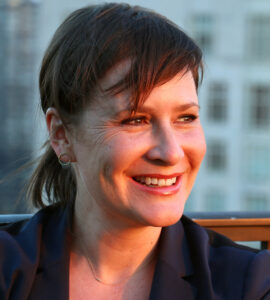 From 2014 to 2020, Jamie Hand was the director of research strategies for ArtPlace America, where she designed and led cross-sector knowledge and network-building efforts to embed arts and cultural practice within the community development field. Prior to ArtPlace, Hand worked at the National Endowment for the Arts, where she launched the Our Town grant program, oversaw the Mayors’ Institute on City Design and the Citizens’ Institute on Rural Design, and advised on interagency efforts including Rebuild by Design. Previously, she worked at Van Alen Institute and for public artist Topher Delaney. Hand’s background in landscape architecture and her strengths as an editor, facilitator, researcher and designer reflect a unique combination of rigor and flexibility, with methods that honor both the linear and the nonlinear, the established and the experimental, the known and the unknown, the logic model and the lived experience. Hand holds a BA from Princeton University’s School of Architecture, and a master of design studies in landscape urbanism from the Harvard Graduate School of Design. She serves as past chair of ioby.org (“in our backyards”) and on the board of the Long Beach Island Foundation for the Arts and Sciences.
From 2014 to 2020, Jamie Hand was the director of research strategies for ArtPlace America, where she designed and led cross-sector knowledge and network-building efforts to embed arts and cultural practice within the community development field. Prior to ArtPlace, Hand worked at the National Endowment for the Arts, where she launched the Our Town grant program, oversaw the Mayors’ Institute on City Design and the Citizens’ Institute on Rural Design, and advised on interagency efforts including Rebuild by Design. Previously, she worked at Van Alen Institute and for public artist Topher Delaney. Hand’s background in landscape architecture and her strengths as an editor, facilitator, researcher and designer reflect a unique combination of rigor and flexibility, with methods that honor both the linear and the nonlinear, the established and the experimental, the known and the unknown, the logic model and the lived experience. Hand holds a BA from Princeton University’s School of Architecture, and a master of design studies in landscape urbanism from the Harvard Graduate School of Design. She serves as past chair of ioby.org (“in our backyards”) and on the board of the Long Beach Island Foundation for the Arts and Sciences.
 Doug Noonan’s research focuses on a variety of policy and economics issues related to cultural affairs, urban environments, neighborhood dynamics and quality of life. His research has been sponsored by a variety of organizations (e.g., National Science Foundation, U.S. Environmental Protection Agency, Lincoln Institute of Land Policy, National Endowment for the Arts) on topics including policy adoption, environmental risks, energy, air quality, spatial modeling, green urban revitalizations and cultural economics. He joined the O’Neill School in 2013 after spending more than a decade on the faculty at the School of Public Policy at Georgia Tech. He is currently the coeditor in chief of the Journal of Cultural Economics, cofounder and faculty director of the Indiana University Center for Cultural Affairs, and codirector of the Arts, Entrepreneurship and Innovation Lab.
Doug Noonan’s research focuses on a variety of policy and economics issues related to cultural affairs, urban environments, neighborhood dynamics and quality of life. His research has been sponsored by a variety of organizations (e.g., National Science Foundation, U.S. Environmental Protection Agency, Lincoln Institute of Land Policy, National Endowment for the Arts) on topics including policy adoption, environmental risks, energy, air quality, spatial modeling, green urban revitalizations and cultural economics. He joined the O’Neill School in 2013 after spending more than a decade on the faculty at the School of Public Policy at Georgia Tech. He is currently the coeditor in chief of the Journal of Cultural Economics, cofounder and faculty director of the Indiana University Center for Cultural Affairs, and codirector of the Arts, Entrepreneurship and Innovation Lab.
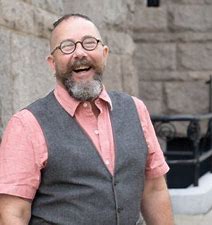
Charles G. Baldwin is the program officer for Mass Cultural Council’s Equity and Access Initiatives, which includes the UP program (UP for Universal Participation), a multiyear-funded peer network of cultural organizations designing accessible approaches to policy development and community engagement. He serves on the Executive Committee of Cultural Access New England and is an active participant in the Kennedy Center’s LEAD (Leadership Exchange for Arts and Disability) Conference and the New England Foundation for the Arts’s Regional Access Coordinators group. Baldwin currently serves on the advisory boards of the Berklee Institute for Accessible Arts Education, Brickbottom Artists Association and the Wicked Queer Film Festival.

Photo by Carrie Holbo
As accessibility director at the National Endowment for the Arts (NEA), Dr. Beth Bienvenu manages the NEA’s technical assistance and advocacy work devoted to making the arts accessible to people with disabilities, older adults and people in institutional settings. She provides guidance and support to arts organizations, arts education organizations, and state and local arts councils, as well as artists with disabilities. Her office supports technical assistance to NEA applicants and grantees, research on the intersection of disability and artistic disciplines, and resources for disabled artists pursuing careers in the arts.
Prior to coming to the NEA, Bienvenu worked as a policy advisor for the U.S. Department of Labor’s Office of Disability Employment Policy, where she analyzed public- and private-sector policies and practices related to employment for people with disabilities. She also served as an adjunct professor for George Mason University’s Master of Arts in Arts Management program, where she taught courses in arts policy and comparative international arts policy, and has a background in performing arts management. Bienvenu has master’s degrees in sociology and arts administration from Indiana University and a doctorate in organizational leadership from The University of Oklahoma.
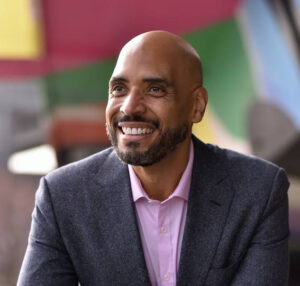 Michael J. Bobbitt, theatre director, choreographer and playwright, joined Mass Cultural Council in 2021, becoming the highest-ranking cultural official in Massachusetts. Previously he served as the artistic director of the New Repertory Theatre in Watertown, Massachusetts, and of Adventure Theatre-MTC in Maryland. While in Maryland, Bobbitt led the organization to be a respected theatre/training company in the D.C. region, as well as a nationally influential professional Theatre for Young Audiences. Bobbitt trained in nonprofit arts management at Harvard Business School’s Strategic Perspectives in Nonprofit Management, The National Arts Strategies Chief Executive Program, and Cornell University’s Diversity and Inclusion Certification Program. He has served as an associate professor of theatre at both the Boston Conservatory at Berklee and Howard University, and has volunteered on numerous nonprofit boards, including Non-Profit Village, Maryland Citizens for the Arts, Leadership Montgomery, Weissberg Foundation, Watertown Public Art Commission and ArtsBoston. In 2021 he was selected to join artEquity’s second cohort of the BIPOC Leadership Circle.
Michael J. Bobbitt, theatre director, choreographer and playwright, joined Mass Cultural Council in 2021, becoming the highest-ranking cultural official in Massachusetts. Previously he served as the artistic director of the New Repertory Theatre in Watertown, Massachusetts, and of Adventure Theatre-MTC in Maryland. While in Maryland, Bobbitt led the organization to be a respected theatre/training company in the D.C. region, as well as a nationally influential professional Theatre for Young Audiences. Bobbitt trained in nonprofit arts management at Harvard Business School’s Strategic Perspectives in Nonprofit Management, The National Arts Strategies Chief Executive Program, and Cornell University’s Diversity and Inclusion Certification Program. He has served as an associate professor of theatre at both the Boston Conservatory at Berklee and Howard University, and has volunteered on numerous nonprofit boards, including Non-Profit Village, Maryland Citizens for the Arts, Leadership Montgomery, Weissberg Foundation, Watertown Public Art Commission and ArtsBoston. In 2021 he was selected to join artEquity’s second cohort of the BIPOC Leadership Circle.
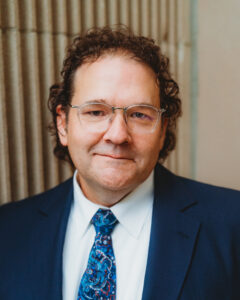 Jeff Garrett is a grant program manager and accessibility coordinator for the Michigan Arts and Culture Council. Previously, he served as the director of the Art School at the Flint Institute of Arts. Garrett has teaching experience in Michigan public schools; has been adjunct faculty at Vincennes University, Saginaw Valley State University and Mott College; and was head of the Art & Design Department at Crowder College. He received a master of fine arts degree in ceramics with distinction from Indiana State University.
Jeff Garrett is a grant program manager and accessibility coordinator for the Michigan Arts and Culture Council. Previously, he served as the director of the Art School at the Flint Institute of Arts. Garrett has teaching experience in Michigan public schools; has been adjunct faculty at Vincennes University, Saginaw Valley State University and Mott College; and was head of the Art & Design Department at Crowder College. He received a master of fine arts degree in ceramics with distinction from Indiana State University.
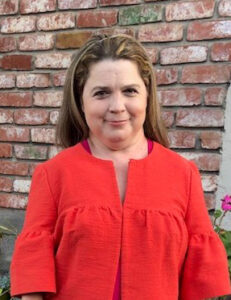 Dr. Katharine Hayward serves as the accessibility specialist at the National Endowment for the Arts. In her role, she provides technical assistance and training to state arts agencies, regional arts organizations, applicants and grantees on ways to integrate accessibility into arts programming, including how to attract and support artists, staff and audiences with disabilities. Hayward believes in the beauty and inherent creative expression that accessibility adds to the arts experience. She is dedicated to the full participation of people with disabilities in all aspects of their communities, including creation, presentation and participation in the arts. Hayward received her master’s degree and Ph.D. in community health sciences from UCLA Fielding School of Public Health, and undergraduate degrees in psychology and rhetoric and communication from UC Davis.
Dr. Katharine Hayward serves as the accessibility specialist at the National Endowment for the Arts. In her role, she provides technical assistance and training to state arts agencies, regional arts organizations, applicants and grantees on ways to integrate accessibility into arts programming, including how to attract and support artists, staff and audiences with disabilities. Hayward believes in the beauty and inherent creative expression that accessibility adds to the arts experience. She is dedicated to the full participation of people with disabilities in all aspects of their communities, including creation, presentation and participation in the arts. Hayward received her master’s degree and Ph.D. in community health sciences from UCLA Fielding School of Public Health, and undergraduate degrees in psychology and rhetoric and communication from UC Davis.
 Ellen Mueller (she/her/hers) has been working at Arts Midwest since 2022 and is the director of programs. She is also an interdisciplinary visual artist and publishes books such as Walking as Artistic Practice.
Ellen Mueller (she/her/hers) has been working at Arts Midwest since 2022 and is the director of programs. She is also an interdisciplinary visual artist and publishes books such as Walking as Artistic Practice.
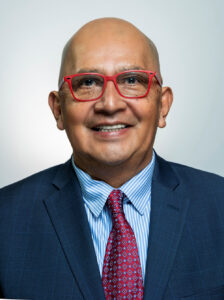
Encarnación Teruel has been the deputy director at the Illinois Arts Council for five years. Prior to his appointment, he was a program director at the agency for 15 years, overseeing grant programs for regional arts organizations, media and visual arts, local arts agencies, art service organizations, individual artists and the Artist Fellowship Awards. During that time, he was also the ADA/504 access coordinator at the Arts Council. Teruel’s work prior to joining the Arts Council includes establishing the Performing Arts Department at the National Museum of Mexican Art and serving as the only performing arts curator in the history of The Field Museum. Additionally, he was the senior cultural arts officer for the Chicago Park District, where he initiated cultural arts programs on a citywide basis. Teruel is currently co-coordinator of NASAA’s People of Color Affinity Group and serves on NASAA’s Nominating Committee and Development Committee. He is an avid cyclist and a yoga enthusiast.
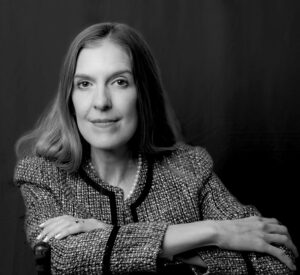 Josy Miller is an arts programs manager at the California Arts Council, where she has served since 2016. At the Arts Council, Miller manages a team that oversees the agency’s State-Local Partner program, artist fellowship programs, arts and youth portfolio, and Arts in Corrections program. A theatre director and scholar, Miller received her Ph.D. in performance studies from the University of California, Davis. She has been the recipient of the Center for Cultural Innovation’s Emerging Arts Leader Award, the Mellon Foundation Teaching/Research Fellowship in Early Modern Studies, and the University of California Institute for Research in the Arts’s Major Grant Award (for her production of “The Dogs of War” at the 2014 Edinburgh Fringe Festival). Miller works regularly as visiting faculty for the UC Davis Department of Theatre and Dance and as a freelance theatre director in the greater capital region. Her article “Performing Collective Trauma: 9/11 and the Reconstruction of American Identity” appears in the collection History, Memory, Performance. She is coeditor, with Peter Lichtenfels, of Shakespeare and Realism: On the Politics of Style.
Josy Miller is an arts programs manager at the California Arts Council, where she has served since 2016. At the Arts Council, Miller manages a team that oversees the agency’s State-Local Partner program, artist fellowship programs, arts and youth portfolio, and Arts in Corrections program. A theatre director and scholar, Miller received her Ph.D. in performance studies from the University of California, Davis. She has been the recipient of the Center for Cultural Innovation’s Emerging Arts Leader Award, the Mellon Foundation Teaching/Research Fellowship in Early Modern Studies, and the University of California Institute for Research in the Arts’s Major Grant Award (for her production of “The Dogs of War” at the 2014 Edinburgh Fringe Festival). Miller works regularly as visiting faculty for the UC Davis Department of Theatre and Dance and as a freelance theatre director in the greater capital region. Her article “Performing Collective Trauma: 9/11 and the Reconstruction of American Identity” appears in the collection History, Memory, Performance. She is coeditor, with Peter Lichtenfels, of Shakespeare and Realism: On the Politics of Style.
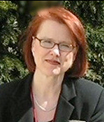 Sue Gens joined the Minnesota State Arts Board in 2001, serving as director of communication and government relations, and interim executive director, before becoming executive director in 2008. Before joining the Arts Board, Gens was director of external relations for the Hubert H. Humphrey Institute of Public Affairs at the University of Minnesota (Twin Cities); and director of development for United Arts, a federated fundraising organization for small and midsized arts organizations in the Minneapolis-Saint Paul metropolitan area. Gens has worked in the Twin Cities nonprofit and public sectors for 30 years; has held management, public relations, marketing or development positions at the Children’s Theatre Company, Minnesota Orchestra, The Saint Paul Chamber Orchestra, COMPAS and the Women’s Theatre Project; and has served as a volunteer, consultant or board member with a variety of nonprofit organizations. She is a graduate of Minnesota State University Moorhead, with degrees in music and arts administration. She currently serves on NASAA’s board of directors.
Sue Gens joined the Minnesota State Arts Board in 2001, serving as director of communication and government relations, and interim executive director, before becoming executive director in 2008. Before joining the Arts Board, Gens was director of external relations for the Hubert H. Humphrey Institute of Public Affairs at the University of Minnesota (Twin Cities); and director of development for United Arts, a federated fundraising organization for small and midsized arts organizations in the Minneapolis-Saint Paul metropolitan area. Gens has worked in the Twin Cities nonprofit and public sectors for 30 years; has held management, public relations, marketing or development positions at the Children’s Theatre Company, Minnesota Orchestra, The Saint Paul Chamber Orchestra, COMPAS and the Women’s Theatre Project; and has served as a volunteer, consultant or board member with a variety of nonprofit organizations. She is a graduate of Minnesota State University Moorhead, with degrees in music and arts administration. She currently serves on NASAA’s board of directors.
 Joshua Davis-Ruperto was elected executive director of the Illinois Arts Council in 2018. He began working with the agency in 2008 and has served in several different capacities, including deputy director and acting executive director. Davis-Ruperto earned his bachelor’s degree from Western Michigan University and his master’s degree from Brandeis University. He has been active in the Chicago theatre community and nonprofit sector for many years.
Joshua Davis-Ruperto was elected executive director of the Illinois Arts Council in 2018. He began working with the agency in 2008 and has served in several different capacities, including deputy director and acting executive director. Davis-Ruperto earned his bachelor’s degree from Western Michigan University and his master’s degree from Brandeis University. He has been active in the Chicago theatre community and nonprofit sector for many years.
 Sunil Iyengar directs the Office of Research & Analysis at the National Endowment for the Arts (NEA). Under his leadership, the office has produced dozens of research reports, hosted periodic research events and webinars, led strategic plan development for the agency, and established research and data partnerships with the U.S. Census Bureau and the Bureau of Economic Analysis. His office also conducts program evaluations and performance measurement for the Arts Endowment. Working with his team, Iyengar has created and pursued a long-term research agenda (based partly on an arts “system map” his office helped to design), founded a national data repository for the arts, and launched two awards programs for arts researchers, including the NEA Research Labs initiative. He chairs a federal Interagency Task Force on the Arts and Human Development. For nearly a decade, he has contributed a monthly research post (titled “Taking Note”) to the agency’s official blog.
Sunil Iyengar directs the Office of Research & Analysis at the National Endowment for the Arts (NEA). Under his leadership, the office has produced dozens of research reports, hosted periodic research events and webinars, led strategic plan development for the agency, and established research and data partnerships with the U.S. Census Bureau and the Bureau of Economic Analysis. His office also conducts program evaluations and performance measurement for the Arts Endowment. Working with his team, Iyengar has created and pursued a long-term research agenda (based partly on an arts “system map” his office helped to design), founded a national data repository for the arts, and launched two awards programs for arts researchers, including the NEA Research Labs initiative. He chairs a federal Interagency Task Force on the Arts and Human Development. For nearly a decade, he has contributed a monthly research post (titled “Taking Note”) to the agency’s official blog.
Iyengar and his team have collaborated with organizations such as the Brookings Institution, the National Academy of Sciences, the Robert Wood Johnson Foundation, the Association of American Medical Colleges and the National Institutes of Health (NIH) to explore the arts in relation to such topics as health and well-being, economic development, and STEM and medicine. His office provides research consultative support to Creative Forces: NEA Military Healing Arts Network. Most recently, he has led a research funding partnership with NIH as part of Sound Health, an initiative of the Kennedy Center and NIH in association with the Arts Endowment.
Prior to joining the agency as research director, Iyengar worked as a reporter, managing editor and senior editor for a host of news publications covering the biomedical research, medical device and pharmaceutical industries. He writes poems, book reviews and literary essays. Iyengar has a B.A. in English from the University of Michigan in Ann Arbor.
 Doug Noonan is a professor at the O’Neill School of Public and Environmental Affairs at Indiana University Indianapolis. His research focuses on a variety of policy and economics issues related to cultural affairs, the built environment and quality of life. Recently, his work has focused on economic impacts of arts and culture, financial support for the arts workforce, inequities in the cultural sector, crowdfunding platforms, and artistic labor in a gig economy. Noonan has written extensively on the value of cultural resources, historic preservation and entrepreneurship in the arts. He is currently the coeditor in chief of the Journal of Cultural Economics, cofounder and faculty director of the Indiana University Center for Cultural Affairs, and codirector of the Arts, Entrepreneurship and Innovation Lab. He received his Ph.D. from the University of Chicago.
Doug Noonan is a professor at the O’Neill School of Public and Environmental Affairs at Indiana University Indianapolis. His research focuses on a variety of policy and economics issues related to cultural affairs, the built environment and quality of life. Recently, his work has focused on economic impacts of arts and culture, financial support for the arts workforce, inequities in the cultural sector, crowdfunding platforms, and artistic labor in a gig economy. Noonan has written extensively on the value of cultural resources, historic preservation and entrepreneurship in the arts. He is currently the coeditor in chief of the Journal of Cultural Economics, cofounder and faculty director of the Indiana University Center for Cultural Affairs, and codirector of the Arts, Entrepreneurship and Innovation Lab. He received his Ph.D. from the University of Chicago.
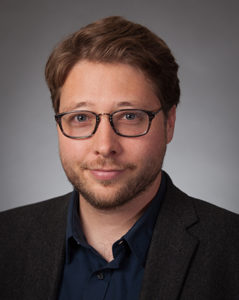 Ryan Stubbs directs NASAA’s research team to provide high-quality information for the benefit of state arts agencies and the arts and culture field. His areas of expertise include public funding for the arts, state policy and the creative economy as well as state arts agency funding, services, operations and grant making. He oversees a research portfolio that includes dynamic data visualization tools, field surveys and research customized to the needs of state arts agencies. Stubbs also represents state arts agencies and NASAA at state, regional and NASAA research forums and serves as NASAA’s primary research liaison to federal agencies, foundations, consultants and scholars conducting research on public support for the arts.
Ryan Stubbs directs NASAA’s research team to provide high-quality information for the benefit of state arts agencies and the arts and culture field. His areas of expertise include public funding for the arts, state policy and the creative economy as well as state arts agency funding, services, operations and grant making. He oversees a research portfolio that includes dynamic data visualization tools, field surveys and research customized to the needs of state arts agencies. Stubbs also represents state arts agencies and NASAA at state, regional and NASAA research forums and serves as NASAA’s primary research liaison to federal agencies, foundations, consultants and scholars conducting research on public support for the arts.
Stubbs has more than 10 years of professional experience in the field of arts research. Prior to joining NASAA, he served as the director of research for the Western States Arts Federation, where he specialized in analyzing state and local creative economy data, implemented web based research technology and launched an initiative aimed at supporting independent music. Stubbs has experience in state government as a capital construction analyst for the Colorado Department of Higher Education and in economic development as a business manager for Adams County, Colorado. He holds master’s degrees in public administration and urban and regional planning with an emphasis in economic development planning from the University of Colorado, Denver.
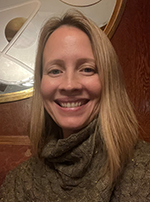 Mohja Rhoads plays an important role in building evidence supporting the arts and state arts agencies through the collection, analysis and communication of data. Rhoads has extensive experience in planning research and policy. Prior to joining NASAA, she worked as a researcher studying telework and big data applications for transportation in partnership with California State Dominguez Hills, the University of California, Los Angeles (UCLA), and the University of Southern California (USC). As the senior research associate for The South Bay Cities Council of Governments, Rhoads developed a South Bay greenhouse gas emissions tool and climate action plan for the South Bay using 10 years of data from several large-scale electric vehicle programs and local surveys. She has an M.A. in urban planning from UCLA and a Ph.D. in planning, policy and development from USC.
Mohja Rhoads plays an important role in building evidence supporting the arts and state arts agencies through the collection, analysis and communication of data. Rhoads has extensive experience in planning research and policy. Prior to joining NASAA, she worked as a researcher studying telework and big data applications for transportation in partnership with California State Dominguez Hills, the University of California, Los Angeles (UCLA), and the University of Southern California (USC). As the senior research associate for The South Bay Cities Council of Governments, Rhoads developed a South Bay greenhouse gas emissions tool and climate action plan for the South Bay using 10 years of data from several large-scale electric vehicle programs and local surveys. She has an M.A. in urban planning from UCLA and a Ph.D. in planning, policy and development from USC.
 Sarah Newman is director of art & education at metaLAB at Harvard University, a project of the Berkman Klein Center for Internet & Society. Her work explores the social, ethical and pedagogical dimensions of artificial intelligence and other emerging technologies through research, art and teaching. Newman leads the AI Pedagogy Project, a resource to provide educators materials for responsible engagement with AI technologies. Newman’s research focuses on data transparency. She cofounded and serves as research lead of the Data Nutrition Project, which aims to mitigate bias in data-driven systems through tools and educational practices.
Sarah Newman is director of art & education at metaLAB at Harvard University, a project of the Berkman Klein Center for Internet & Society. Her work explores the social, ethical and pedagogical dimensions of artificial intelligence and other emerging technologies through research, art and teaching. Newman leads the AI Pedagogy Project, a resource to provide educators materials for responsible engagement with AI technologies. Newman’s research focuses on data transparency. She cofounded and serves as research lead of the Data Nutrition Project, which aims to mitigate bias in data-driven systems through tools and educational practices.
Newman is an installation artist who has exhibited work in New York, Miami, Berlin and London, and has attended artist residencies in Germany, Italy and Sweden. Previous honors include: AI Grant, Harvard Assembly Fellow, Harvard Berkman Klein Fellow, a Rockefeller AI Resident, Artist-in-Residence at Northeastern School of Law, a grantee of the Notre Dame Tech Ethics Lab, a grantee of the National Endowment for the Arts and winner of the 2022 Ars Electronica Award for Digital Humanity.